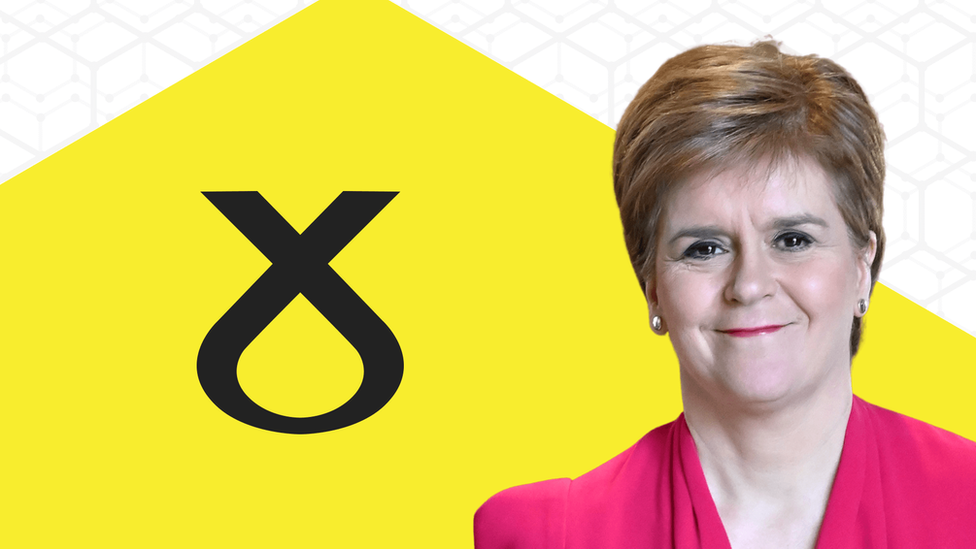Scottish election 2021: A simple guide to Scottish Labour
- Published
The Scottish Labour Party is the third largest party in the Scottish Parliament, with 23 MSPs out of 129 seats.
It formed the first devolved Scottish government in coalition with the Lib Dems from 1999 to 2007.
The party elected their new leader, Anas Sarwar, 10 weeks before this year's Holyrood election.

Scottish Labour leader Anas Sarwar
Who is the leader?
Anas Sarwar. The former dentist was elected as MP for Glasgow Central from 2010 to 2015 and took an active role in the pro-Union No campaign leading up to the 2014 independence referendum.
Scottish Labour faced a leadership election in 2017 after Kezia Dugdale quit and Mr Sarwar ran against Richard Leonard for the top job. After a rancorous campaign, Mr Leonard won the race.
Mr Sarwar's most high-profile role as an MSP was as Scottish Labour's health spokesman and he played a key role in the concern over safety issues at Glasgow's Queen Elizabeth University Hospital which led to a public inquiry. After the Glasgow Central seat was won by the SNP's Alison Thewliss in the 2015 general election, Mr Sarwar turned his attention to Holyrood and was elected a list MSP for Glasgow in 2016.
He won the Scottish Labour leadership race against Monica Lennon on 27 February, after Richard Leonard stepped down from the post.
What do they need to do to win the election?
The Scottish Labour need 42 more MSPs elected to form a government on their own. Realistically, the party will be aiming to increase its number of seats and finish as the second largest party.
Key policies
Guarantee a job for every young Scot
Invest in the NHS to get cancer treatment back on track, improve mental health, and give carers the pay they deserve
Develop a comeback plan for education which invests in and gives IT support to schools
Invest in green jobs and seize Scotland's hosting of COP26 to champion an ambitious climate justice plan
Create a community recovery fund to invest in local areas
Where does it stand on independence?
Scottish Labour opposes a second independence referendum. The party says it's "unwanted and unnecessary", and they'll campaign to ensure Scotland remains part of the UK because independence would increase austerity for Scottish families.
Anas Sarwar said during his recent leadership campaign that he would rule out another referendum for the lifetime of the next Scottish parliament as the country rebuilds after Covid.
Scottish Labour policy in a tweet
Allow X content?
This article contains content provided by X. We ask for your permission before anything is loaded, as they may be using cookies and other technologies. You may want to read X’s cookie policy, external and privacy policy, external before accepting. To view this content choose ‘accept and continue’.
What is the Scottish Labour Party's history?
Traditionally one of the UK's two main political parties, Labour was set up by trade unions nearly 120 years ago to give workers a voice in Parliament.
When Scotland became a devolved government in 1999, Labour MSP Donald Dewar became the country's first ever first minister.
Scotland has had a Labour first minister for a total of 8 years, compared with 14 years for the SNP.
What about the other parties?


Do you have a question about the Scottish Parliament election? Use the form below to send us your questions and we could be in touch.
In some cases your question will be published, displaying your name, and location as you provide it, unless you state otherwise. Your contact details will never be published. Please ensure you have read the terms and conditions.
If you are reading this page on the BBC News app, you will need to visit the mobile version of the BBC website to submit your question on this topic.

Related topics
- Published14 April 2021

- Published19 April 2021

- Published14 April 2021

- Published16 April 2021
